Thanks a Lot / Palms Springs 2021
Monday, November 22: "Holiday Helper" store shift #1

Tuesday, November 23: Academy of Motion Pictures, Los Angeles
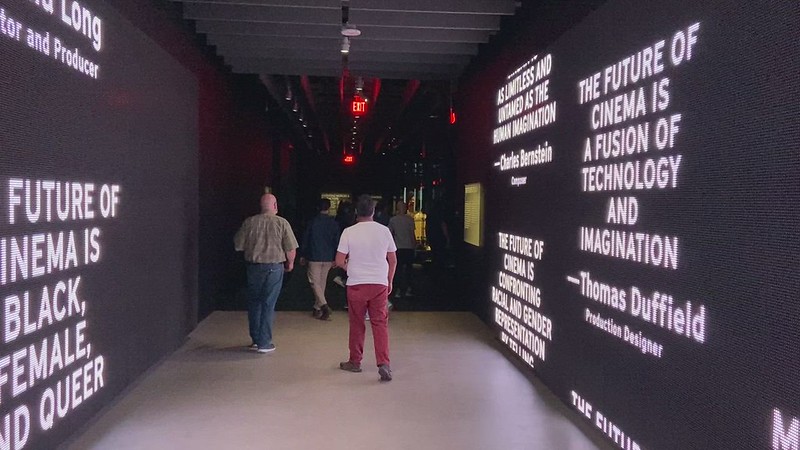

Wednesday, November 24: Dinner In Cathedral City
Palm Springs (inc. 1938, pop. 48,518)
Cathedral City (inc. 1981, pop. 51,493)
Rancho Mirage (inc. 1973, pop. 18,528)
Thousand Palms (census designated place, pop. 7,715)
Palm Desert (inc. 1973, pop. 53,275)
Indian Wells (inc. 1967, pop. 5,470)
Bermuda Dunes (census designated place, pop. 8,244)
La Quinta (inc. 1982, pop. 41,748)
Indio (inc. 1930, pop 91,765)
Coachella (inc. 1946, pop. 41,941) Total among these cities: 401,209. That's comparable to, say, Savannah, Georgia, or Anchorage, Alaska. Also, tracking the populations of these cities is tricky, due to the fluctuation of "snow birds"—people from northern states who live down there only during the cold half of the year. Wikipedia says the valley "luctuates from almost 500,000 in April to around 200,000 in July and around 800,000 by January," although it has no source cited. Whoever wrote that could have pulled it out of their ass. Anyway, evidently back in the late thirties only Palm Springs and Indo were incorporated—they are 24 miles apart, and at the time there was no doubt a lot of nothing in between them. The City of Coachella, which borders Indio, came in the forties; most the rest did not become cities until the sixties and seventies, a couple even into the eighties. So, anyway. Dinner on Tuesday was in Cathedral City. I kept thinking we were in Palm Springs but we weren't!
Thursday, November 25: Thanksgiving
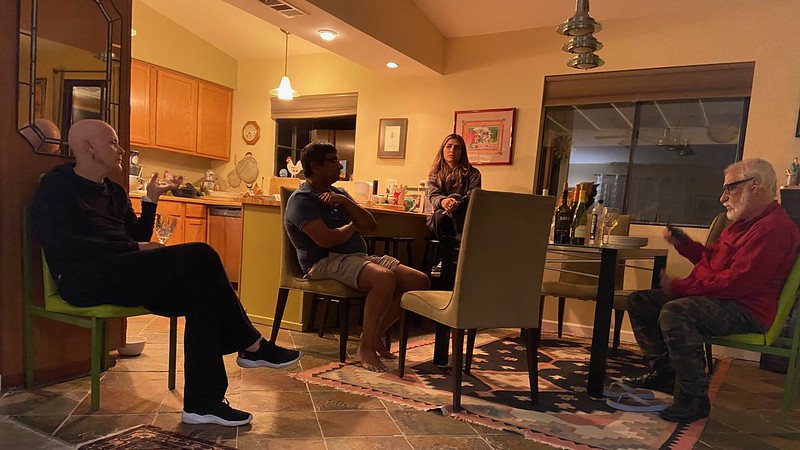

Friday, November 26: Joshua Tree National Park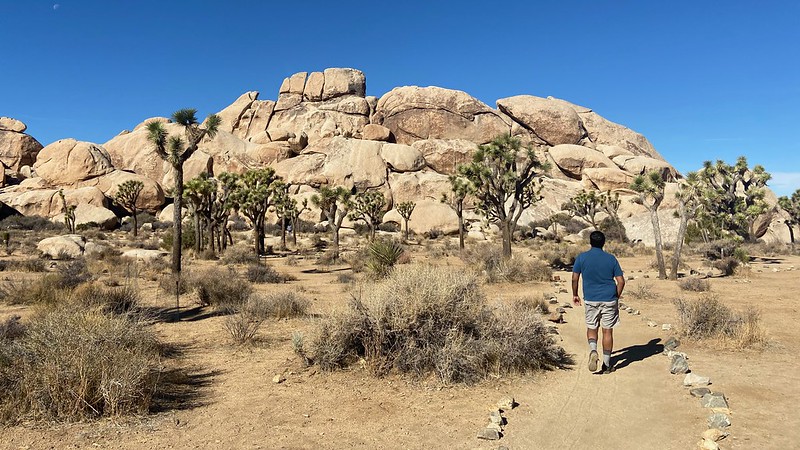
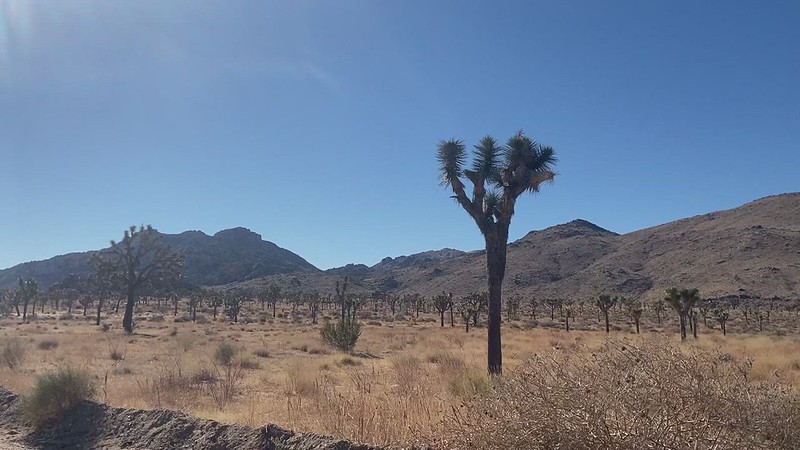
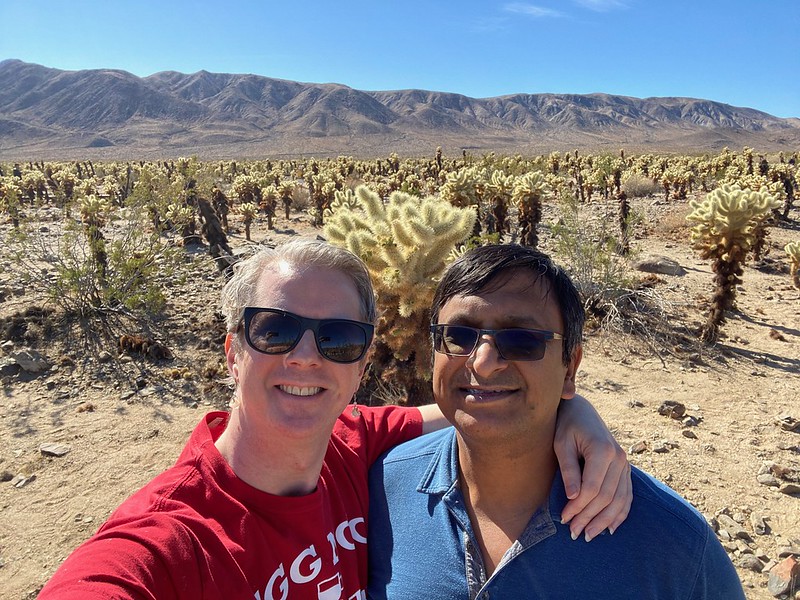
Coachella Festival Site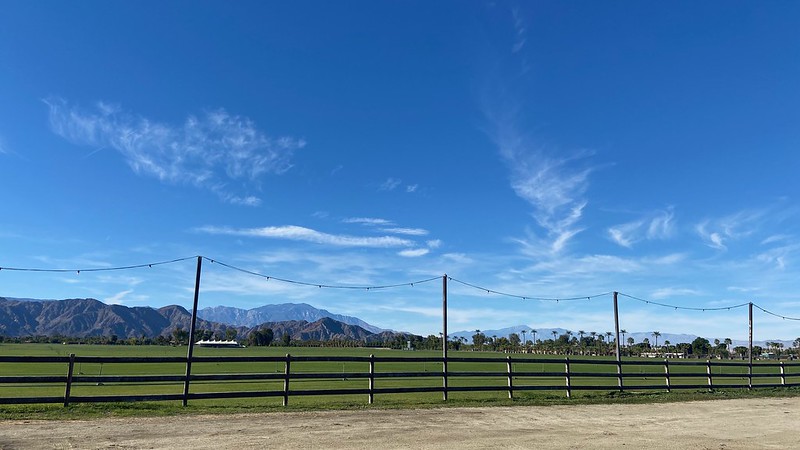
Salton Sea State Recreation Area
Beginning in 1900, an irrigation canal was dug from the Colorado River to the old Alamo River channel to provide water to the Imperial Valley for farming. The headgates and canals sustained a buildup of silt, so a series of cuts were made in the bank of the Colorado River to further increase the water flow. Water from spring floods broke through a canal head-gate diverting a portion of the river flow into the Salton Basin for two years before repairs were completed. The water in the formerly dry lake bed created the modern lake, which is about 15 by 35 miles (24 by 56 km). The lake would have dried up, but farmers used generous amounts of Colorado River water and let the excess flow into the lake. In the 1950s and into the '60s, the area became a resort destination, and communities grew with hotels and vacation homes. Birdwatching was also popular as the wetlands were a major resting stop on the Pacific Flyway. In the 1970s, scientists issued warnings that the lake would continue to shrink and become more inhospitable to wildlife. In the 1980s, contamination from farm runoff promoted the outbreak and spread of diseases. Massive die-offs of the avian populations have occurred, especially after the loss of several species of fish on which they depend. Salinity rose so high that large fish kills occurred, often blighting the beaches of the sea with their carcasses. Tourism was drastically reduced. After 1999, the lake began to shrink as local agriculture used the water more efficiently so less runoff flowed into the lake. As the lake bed became exposed, the winds sent clouds of toxic dust into nearby communities. Smaller amounts of dust reached into the Los Angeles area and people there could sometimes smell an odor coming from the lake. The state is mainly responsible for fixing the problems, and California lawmakers pledged to fund air-quality management projects in conjunction with the signing of the 2003 agreement to send more water to coastal cities. Local, state, and federal bodies all had found minimal success dealing with the dust, dying wildlife, and other problems for which warnings had been issued decades before. At the beginning of 2018 local agencies declared an emergency and along with the state funded and developed the Salton Sea Management Program. After a slow start and some small projects, construction started on a $206.5 million project in early 2021 on the delta of the New River, creating ponds and wetlands on the southern shore of the lake. In 2020, Palm Springs Life magazine summarized the ecological situation as "Salton Sea derives its fame as the biggest environmental disaster in California history".
Toxic dust and extinctions, what fun! So, we made it the site of our picnic lunch (of leftover shahi paneer with rice and parathas) on Tuesday, limiting our stay to only about half an hour so we would not be too late to our next stop . . .
Palm Springs Windmill Tours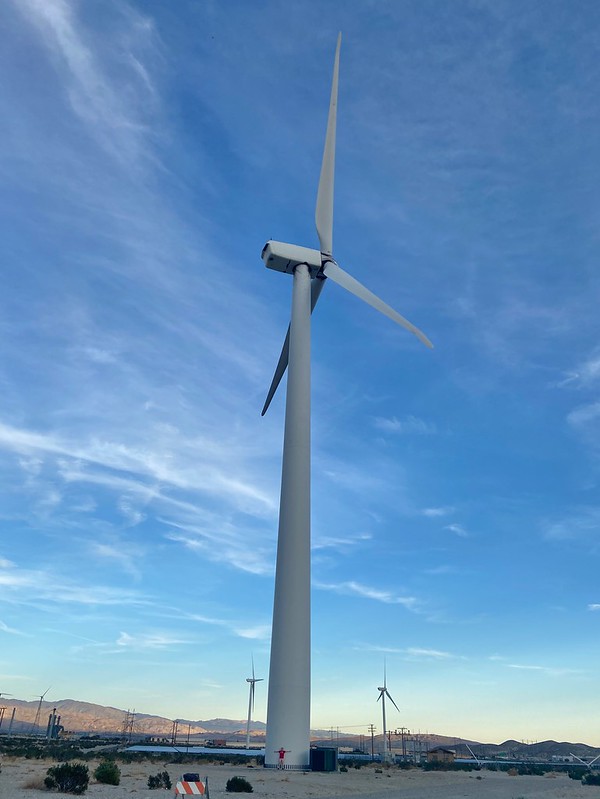
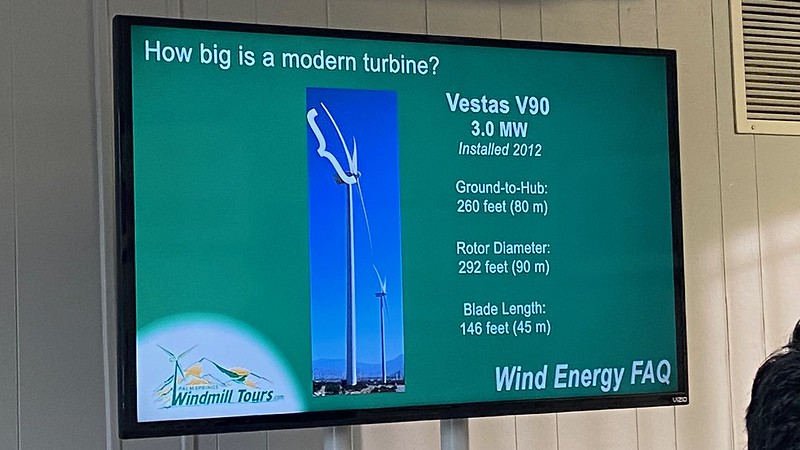


Saturday, November 27: traveling home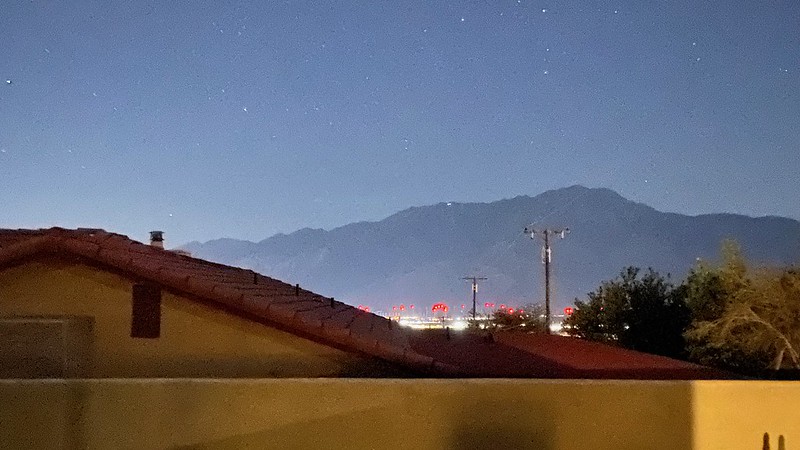

Tuesday, November 23: Academy of Motion Pictures, Los Angeles



Wednesday, November 24: Dinner In Cathedral City

Palm Springs (inc. 1938, pop. 48,518)
Cathedral City (inc. 1981, pop. 51,493)
Rancho Mirage (inc. 1973, pop. 18,528)
Thousand Palms (census designated place, pop. 7,715)
Palm Desert (inc. 1973, pop. 53,275)
Indian Wells (inc. 1967, pop. 5,470)
Bermuda Dunes (census designated place, pop. 8,244)
La Quinta (inc. 1982, pop. 41,748)
Indio (inc. 1930, pop 91,765)
Coachella (inc. 1946, pop. 41,941) Total among these cities: 401,209. That's comparable to, say, Savannah, Georgia, or Anchorage, Alaska. Also, tracking the populations of these cities is tricky, due to the fluctuation of "snow birds"—people from northern states who live down there only during the cold half of the year. Wikipedia says the valley "luctuates from almost 500,000 in April to around 200,000 in July and around 800,000 by January," although it has no source cited. Whoever wrote that could have pulled it out of their ass. Anyway, evidently back in the late thirties only Palm Springs and Indo were incorporated—they are 24 miles apart, and at the time there was no doubt a lot of nothing in between them. The City of Coachella, which borders Indio, came in the forties; most the rest did not become cities until the sixties and seventies, a couple even into the eighties. So, anyway. Dinner on Tuesday was in Cathedral City. I kept thinking we were in Palm Springs but we weren't!
Thursday, November 25: Thanksgiving



Friday, November 26: Joshua Tree National Park



Coachella Festival Site

Salton Sea State Recreation Area

Beginning in 1900, an irrigation canal was dug from the Colorado River to the old Alamo River channel to provide water to the Imperial Valley for farming. The headgates and canals sustained a buildup of silt, so a series of cuts were made in the bank of the Colorado River to further increase the water flow. Water from spring floods broke through a canal head-gate diverting a portion of the river flow into the Salton Basin for two years before repairs were completed. The water in the formerly dry lake bed created the modern lake, which is about 15 by 35 miles (24 by 56 km). The lake would have dried up, but farmers used generous amounts of Colorado River water and let the excess flow into the lake. In the 1950s and into the '60s, the area became a resort destination, and communities grew with hotels and vacation homes. Birdwatching was also popular as the wetlands were a major resting stop on the Pacific Flyway. In the 1970s, scientists issued warnings that the lake would continue to shrink and become more inhospitable to wildlife. In the 1980s, contamination from farm runoff promoted the outbreak and spread of diseases. Massive die-offs of the avian populations have occurred, especially after the loss of several species of fish on which they depend. Salinity rose so high that large fish kills occurred, often blighting the beaches of the sea with their carcasses. Tourism was drastically reduced. After 1999, the lake began to shrink as local agriculture used the water more efficiently so less runoff flowed into the lake. As the lake bed became exposed, the winds sent clouds of toxic dust into nearby communities. Smaller amounts of dust reached into the Los Angeles area and people there could sometimes smell an odor coming from the lake. The state is mainly responsible for fixing the problems, and California lawmakers pledged to fund air-quality management projects in conjunction with the signing of the 2003 agreement to send more water to coastal cities. Local, state, and federal bodies all had found minimal success dealing with the dust, dying wildlife, and other problems for which warnings had been issued decades before. At the beginning of 2018 local agencies declared an emergency and along with the state funded and developed the Salton Sea Management Program. After a slow start and some small projects, construction started on a $206.5 million project in early 2021 on the delta of the New River, creating ponds and wetlands on the southern shore of the lake. In 2020, Palm Springs Life magazine summarized the ecological situation as "Salton Sea derives its fame as the biggest environmental disaster in California history".
Toxic dust and extinctions, what fun! So, we made it the site of our picnic lunch (of leftover shahi paneer with rice and parathas) on Tuesday, limiting our stay to only about half an hour so we would not be too late to our next stop . . .
Palm Springs Windmill Tours




Saturday, November 27: traveling home

